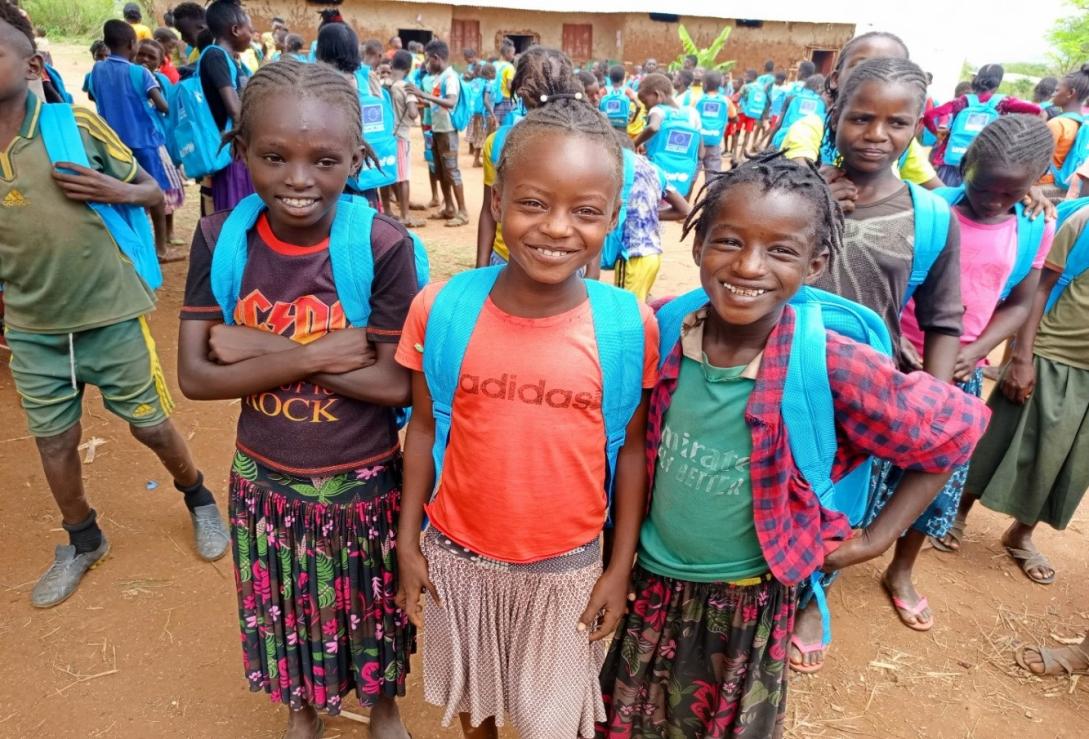Restoring Essential Education services to conflict-affected children in Ethiopia

Since 2018, Ethiopia has faced multiple crises—including conflict, drought, COVID-19, locust infestations, and economic hardship—that have worsened the humanitarian situation across the country.
Between 2020 and 2022, a civil war in the northern regions of Tigray, Amhara, and Afar had a devastating impact. Other parts of the country have also experienced rising violence. As a result, millions of children—especially girls—have been forced out of school. Many schools have been damaged or destroyed, and children are facing increased risks, including psychological trauma and gender-based violence.
Key Challenges in the Education Sector
-
Widespread Damage to Schools
Thousands of schools have been damaged or destroyed, making it difficult for children to access education. -
High Dropout Rates
Conflict has left an estimated 9 million children out of school, with girls especially affected due to early marriage and harmful practices. -
Lack of Food and School Meals
Food shortages and the absence of school feeding programs have led to more children dropping out. -
Mental Health and Protection Risks
Children affected by conflict face emotional distress and are more vulnerable to abuse and exploitation.
Objectives
Given this background, the overall objective of the project is to improve the provision of education specifically for conflict-affected children in Ethiopia.
The project aims to ensure access to quality education in crisis situations in conflict-affected areas.
To reduce dropout rates in primary and secondary education in conflict-affected areas, with a special emphasis on reducing the dropout rates of girls.
Project Activities
- School reconstruction and rehabilitation.
- Support for the Accelerated Education Programme to reach out-of-school children.
- Continued implementation of the Accelerated Education Programme to reintegrate out-of-school children.
- Provision of capacity-building training for teachers and facilitators on inclusive education, learner-centered and gender-responsive pedagogy, flexible curriculum, mental health and psychosocial support (MHPSS), socio-emotional learning, and parenting skills.
- Support for the provision of MHPSS services for children affected by conflict.
Results
- Reconstruction and rehabilitation of 55 primary and secondary schools across six regions.
- Provision of Accelerated Learning Program/Accelerated School Readiness support for 10,032 learners (4,777 girls and 558 children with disabilities).
- Distribution of school materials to 63,028 children, including assistive devices for 113 children with disabilities, across 151 conventional schools and 119 Accelerated Learning Programme/Accelerated School Readiness centres.
- Capacity-building training provided for 1,804 teachers and facilitators (674 female).
- Delivery of MHPSS services to 27,551 school children (13,889 girls and 1,327 children with disabilities) suffering from conflict-related trauma.

